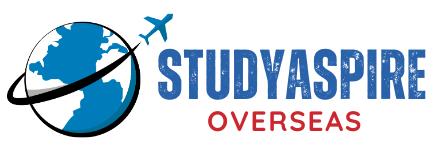Visa Interview
CANADA

Why Study in the Canada?
Canada offers a world-class education system, inclusive multicultural environment, and excellent post-graduation opportunities. Students benefit from globally recognized degrees, diverse programs, and a high quality of life. Additionally, Canada’s welcoming policies for international students make it a preferred destination for education.
Types of Student Visas
Study Permit
Required for academic, professional, or vocational programs lasting more than six months.
Visitor Visa
For students enrolled in short-term courses (six months or less).
Co-op/Internship Work Permit
For students whose academic programs include mandatory work placements.

Eligibility Criteria
General Requirements
To qualify for a student visa, applicants must meet several criteria:
Valid Passport: Your passport must remain valid for the entire duration of your studies.
Letter of Acceptance (LOA): Issued by a Designated Learning Institution (DLI) in Canada.
Language Proficiency: Proof of English or French proficiency through IELTS, TOEFL, or other recognized tests.
Financial Resources: Demonstrate sufficient funds for tuition, living expenses, and return travel.
Specific Visa Requirements
Study Permit: Must have an LOA and evidence of financial stability.
Visitor Visa: Proof of enrollment in a short-term course and funds for the duration of your stay.
Co-op/Internship Work Permit: Requires a letter from your institution confirming the work component.
Application Process
Step-by-Step Guide

Accept Admission Offer: Secure admission from a DLI and obtain your Letter of Acceptance.
Determine Visa Type: Based on your course duration and requirements, decide on a Study Permit or Visitor Visa.
Complete Application: Fill out the online application on the Government of Canada website.
Pay Fees: Submit the visa application fee and, if required, biometrics fee.
Prepare Documents: Include your passport, LOA, proof of funds, and test results for language proficiency.
Biometrics Appointment: Provide biometrics (fingerprints and photo) as part of the application process.
Submit Application: Submit your completed application and wait for approval.
Financial Requirements
Proof of Financial Stability
Bank Statements: Show availability of funds to cover tuition and living expenses (minimum CAD 10,000 annually for living expenses outside Quebec, or CAD 11,000 in Quebec).
Scholarships: If applicable, include scholarship award letters.
Sponsorship: Provide documents of financial sponsorship or parental income.
Scholarships and Financial Aid
University Scholarships: Many Canadian institutions offer merit-based and need-based financial aid.
Government Scholarships: Programs like the Canada Graduate Scholarships (CGS) are available for international students.
External Scholarships: Global organizations and foundations also provide funding opportunities.
Post-Visa Approval

Pre-Departure Checklist
- Travel Arrangements: Book flights and organize airport transfers.
- Accommodation: Arrange for housing, either on-campus or off-campus.
- Essential Packing: Prepare personal items, academic materials, and required travel documents.
Arrival in the CANADA
- Immigration Clearance: Present your visa, Letter of Acceptance, and proof of funds to Canadian border officers.
- Study Permit Issuance: Obtain your study permit upon entry (if applicable).
- School Registration: Complete all required registration steps at your institution.
Compliance with Visa Rules
- Full-Time Enrollment: Maintain your enrollment status and meet academic performance requirements.
- Work Restrictions: Work a maximum of 20 hours per week during academic terms and full-time during breaks.
- Document Validity: Keep your study permit, visa, and passport updated.
Extension and Renewal
- Program Extension: Apply for an extension if your course duration changes.
- Study Permit Renewal: If your study permit is nearing expiration, submit a renewal application through Immigration, Refugees, and Citizenship Canada (IRCC).
Maintaining Your Visa Status

Visa Interview
Preparation Tips
Understand Your Program: Clearly articulate why you chose your program and institution.
Practice Questions: Prepare answers about your study plans, financial resources, and post-graduation goals.
Organize Documents: Keep all required documents, such as your LOA and proof of funds, well-organized.
Common Questions
Why did you choose this program and school?
How will you finance your studies and living expenses?
What are your plans after completing your studies?


Working While Studying
On-Campus Employment
Eligibility: Work up to 20 hours per week during terms and full-time during breaks.
Job Opportunities: Positions in administration, libraries, and research departments.
Off-Campus Employment
Study Permit Holders: Eligible to work part-time off-campus during the academic year.
Post-Graduation Work Permit (PGWP): Allows graduates to work in Canada for up to three years, depending on the duration of their program.
FAQs
The process typically takes 6–12 weeks, depending on the volume of applications.
Yes, your spouse and children may apply for open work permits or visitor visas.
If denied, you can appeal the decision or reapply after addressing the stated reasons for denial.


